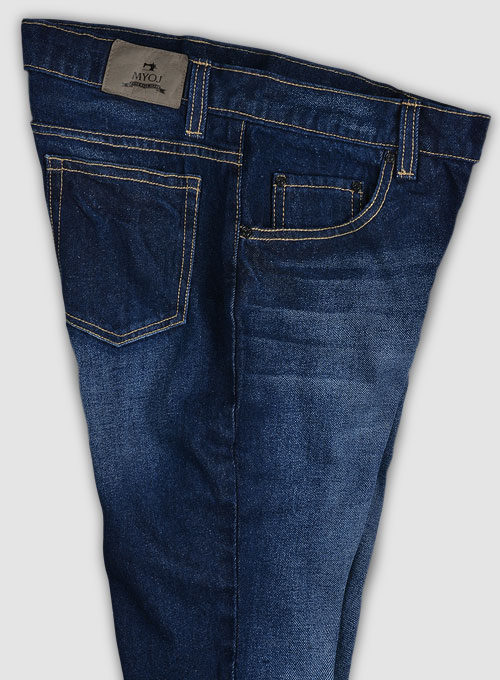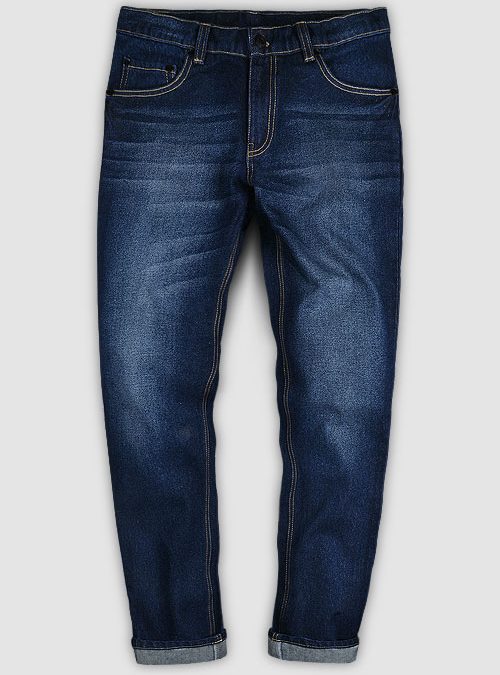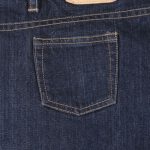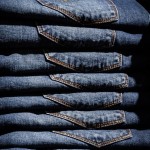Are you tired of buying new jeans, only for them to shrink just a few months later? Jeans are the preferred type of pants among men and women alike. Statistics show the average person owns over a half-dozen pairs of them. They are strong and durable yet also soft and comfortable.
Like all pants, though, jeans can shrink. If a pair of jeans shrink several sizes, you may no longer be able to wear them. Fortunately, there are shrink-resistant jeans available for sale; you just need to know what to look for when shopping for them.
Washed Denim
Jeans made of washed denim offer a higher level of protection against shrinkage than those made of dry denim. Both raw denim and washed denim consist of cotton. The difference is that washed denim is submerged in a bath of water during production, whereas raw denim is not. Because washed denim is literally washed, jeans made of this material are less likely to shrink.
If you’re worried that your jeans will shrink, stick with washed denim. Hard washed jeans are especially effective. They are made of denim that’s washed in hot water during production. When exposed to hot water, the denim shrinks. This initial shrinkage means they are less likely to shrink when washed and dried in the future.
Heavyweight
The weight of the denim used in a pair of jeans can vary. Some jeans are made with lightweight denim, whereas others are made of heavyweight denim. For the utmost level of protection against shrinkage, it’s recommended that you choose the latter type.
Heavyweight denim is thicker and denser than its lightweight counterpart. In some cases, jeans made of heavyweight denim can weigh up to twice as much as those made of lightweight denim. Why does this matter? With heavyweight denim, jeans are less likely to shrink.
True Denim
Make sure the jeans are made of true denim. Not all jeans are made entirely of denim. Jeans are defined by their use of denim. Denim is cotton featuring a warp-faced weaving pattern. It’s what distinguishes jeans from other types of pants and trousers. With that said, however, some jeans contain other materials as well.
Jeans that contain other materials are generally more likely to shrink than those made of entirely of denim. The presence of other materials, such as polyester, makes them vulnerable to shrinkage. As a result, you should stick with jeans made entirely and exclusively of denim.

High-Quality Construction
The construction quality matters when choosing a pair of jeans. Some manufacturers design their jeans with an emphasis on quality. Other manufacturers, unfortunately, pay little or no attention to quality. Instead, they mass-produce their jeans, resulting in a low-quality construction that’s susceptible to shrinkage as well as other forms of damage.
High-quality jeans typically cost more than low-quality jeans, but you have to think about their long-term value. If a pair of jeans is made with high-quality denim, as well as a high-quality construction, they’ll last longer and be better protected against shrinkage. Therefore, choosing high-quality jeans can actually save you money in the long run. If you buy a pair of low-quality jeans, you may find yourself replacing them shortly down the road, in which case you’ll spend more money.
Consider Stonewashed
You should consider choosing a pair of stonewashed jeans if you’re worried about them shrinking. Stonewashed jeans are denim trousers that use the same material as most other jeans. They are known as “stonewashed,” though, because they are processed with stones. Stonewashed jeans are processed in a tumble drying machine with large stones. The stones batter against the jeans to wear them down, thus creating an aged texture and appearance.
Stonewashed jeans can still shrink, but the good news is that they are less likely to shrink than other types of jeans. Stonewashed jeans are processed in a way that naturally protects them from shrinkage. Therefore, they’ve become a popular style of jeans for this reason.
In addition to being better protected against shrinkage, stonewashed jeans have a super-soft texture. As the stones strike their surface, the jeans become softer. Stonewashed jeans have a similar level of softness as aged and vintage jeans. If you’ve ever worn a pair of vintage jeans, you may recall them being super soft. Well, stonewashed jeans are designed to achieve a similar level of softness.
Read the Care Tag
Always read the care tag to discover what, exactly, is required to clean and maintain a pair of jeans. Manufacturers include a care tag on their jeans to help consumers maintain them. Manufacturers know that different jeans require different forms of maintenance, which is why they use care tags.
You can find the care tag inside the waistband of your jeans. It’s a small piece of fabric with written instructions on how to wash, dry and maintain the jeans.
Get the Right Size
Don’t forget to choose a pair of jeans in the right size. If your jeans are too small and they happen to shrink, they may be too small for you to comfortably wear.
For the perfect fit, order your jeans from MakeYourOwnJeans. We offer custom sizing at no additional charge. Whether you choose low-rise, relaxed, baggy, skinny, straight-leg or any other style, you can specify your own body measurements.
Other Tips to Prevent Shrinkage
In addition to choosing the right pair of jeans, there are other things you do to protect your jeans from shrinkage. Washing in cold water — as opposed to hot water — will protect your jeans from shrinkage. Hot water induces shrinkage, whereas cold water does not.
You can also prevent your jeans from shrinking by line-drying them. Line-drying means hanging your jeans on a line to dry them. If you dry them in a clothes dryer, they’ll be exposed to heat that can cause them to shrink. Line-drying takes a little longer, but it’s a gentler approach that won’t contribute to shrinkage.











